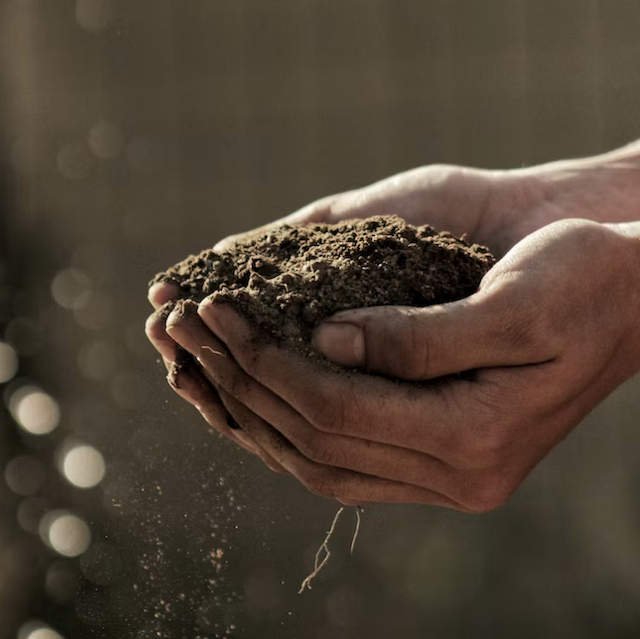
What is Regenerative Farming?
Share
What is regenerative farming and why should we care?
Regenerative farming is a way of growing food that focuses on improving the health of the soil, the environment and the people. It is based on a holistic understanding of how nature works, and how we can work with it instead of against it.

Regenerative farming practices include:
- Minimizing soil disturbance and using cover crops, mulches and compost to protect and enrich the soil.
- Rotating crops and integrating animals to diversify and balance the ecosystem.
- Avoiding synthetic fertilizers, pesticides and herbicides that harm the soil life and pollute the water.
- Enhancing biodiversity by planting a variety of crops and creating habitats for wildlife.
- Storing carbon in the soil by increasing organic matter and reducing tillage.
Regenerative farming is not only good for the planet, but also for our health. This type of farming is a pinnacle of One Health, the interconnectedness of our decisions on the collective health. Healthy soil produces healthy food, which nourishes our bodies, feeds our microbiome and prevents diseases. As Michael Pollan, author and food activist, says: "You are what you eat eats." When we eat food grown in healthy soil, we are eating the minerals, vitamins, antioxidants and phytochemicals that support our immune system, digestion, brain function and mood. Alternatively when we are eating foods that have been sprayed with pesticides we are ingesting those too.
Regenerative farming also helps to mitigate climate change by drawing down carbon dioxide from the atmosphere and storing it in the soil. This reduces greenhouse gas emissions and increases resilience to extreme weather events. According to a white paper by the Rodale Institute, regenerative organic agriculture could sequester more than 100% of current annual CO2 emissions with a switch to common and inexpensive organic management practices. We could do with more of this thats for sure!

If you are interested in supporting regenerative farming and enjoying its benefits, here are some ways you can do it:
- Buy organic food whenever possible, especially from local farmers who practice regenerative methods.
- Grow your own food using organic seeds, compost and natural pest control.
- Join a community-supported agriculture (CSA) program or a food co-op that sources from regenerative farms.
- Educate yourself and others about the importance of regenerative farming and its impact on our health and environment. Recommended reading "Dirt To Soil" by Gabe Brown.
- Advocate for policies that support regenerative farmers and consumers.
Regenerative farming is not a new idea, but a rediscovery of ancient wisdom that has been practiced by Indigenous communities for millennia. It is a way of healing our relationship with the land, with ourselves and with each other. It is a way of creating abundance, harmony and well-being for all living beings.
To find out more about regenerative farming and where to buy regeneratively farmed products and ingredients, visit https://regenerationinternational.org/.
